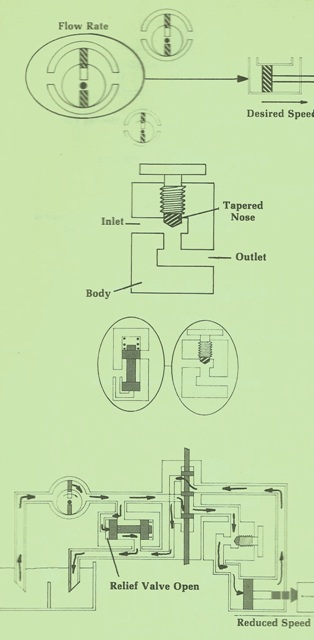How the Flow on a Control Valve Works

How the Flow on a Control Valve Works
April 7, 2017 Comments Off on How the Flow on a Control Valve WorksThe discussion today is about how control valves work:
All flow control valve, when properly used, always reduces the flow rate from a pump to an actuator.
Consists of:
A normal flow control valve consists of a valve body and movable part. The movable part in our example is a tapered nose rod which is threaded into the valve body. The movable part in our flow control valve is better described as adjustable since no movement takes place while the valve is operating.
How it works:
In a hydraulic system, there is many times a direct working relationship between a flow control valve and a pressure valve functioning as a relief valve. The flow control valve is a resistance which results in a higher pressure being applied by the pump. This pressure partially opens the relief valve. The result is some flow goes over the relief valve and less flow through the flow control and to the actuator.
As always, feel free to comment on any topic we blog about. You can reach us at 800-361-0068 or email us at sales@hydrostatic-transmission.com
hydrostatic-transmission.com